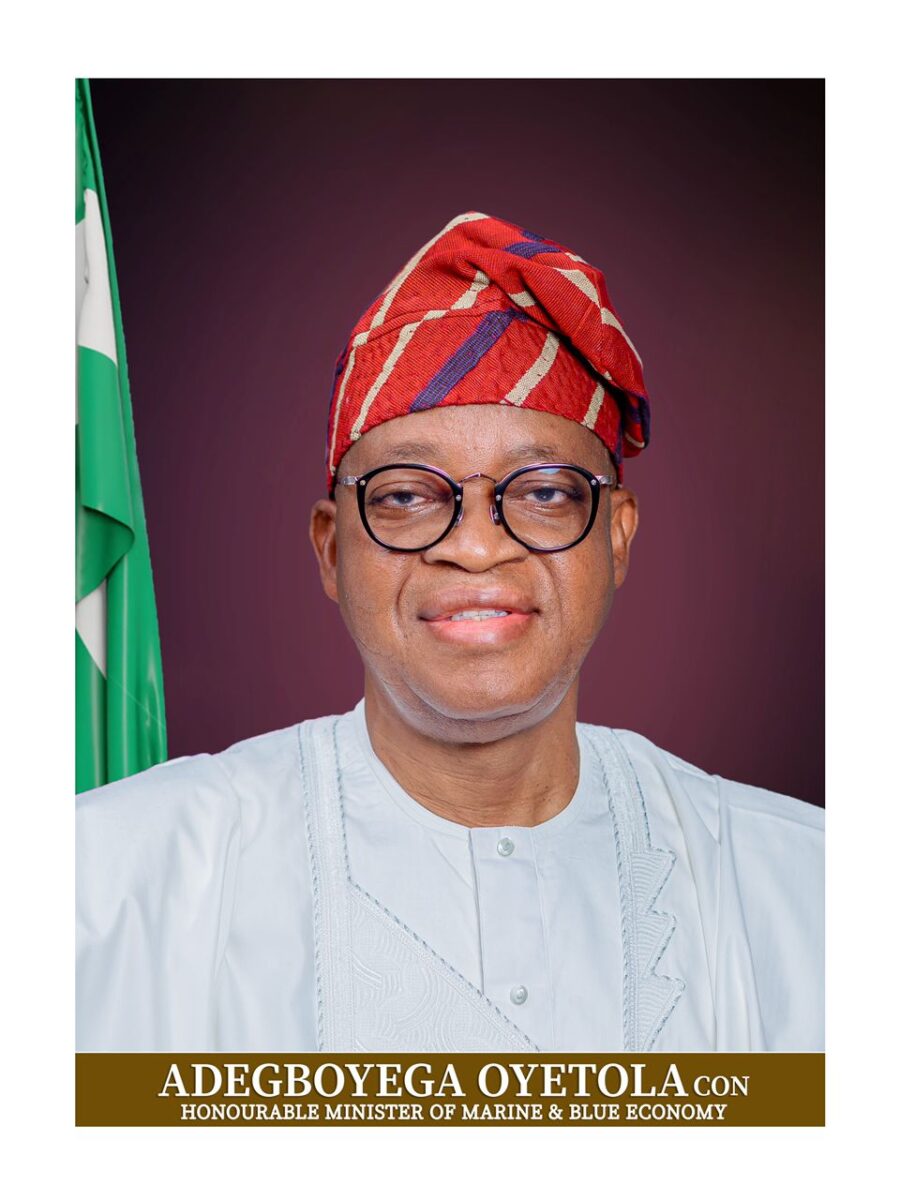
The Federal Government has reaffirmed its commitment to enhancing Nigeria’s maritime sector by supporting the National Coast Guard Bill, which it describes as a crucial initiative to unlock the nation’s maritime potential.
At a one-day public hearing on the bill held at the National Assembly complex on Thursday, the Honourable Minister of Marine and Blue Economy, Adegboyega Oyetola, emphasized its potential to transform maritime safety, promote sustainable use of marine resources, and drive economic growth.
Oyetola outlined the proposed National Coast Guard’s critical mandates, which include ensuring safety on Nigerian waterways, enforcing environmental protections, and conserving marine ecosystems. The body would also oversee the enforcement of civil maritime laws, including fishing regulations and preventing illegal exploitation of resources, while maintaining the capacity to respond to maritime emergencies through effective search-and-rescue operations.
Drawing attention to a 2009 publication by the African Centre for Strategic Studies, Oyetola noted that 15 out of 21 independent maritime nations in sub-Saharan Africa have dedicated coast guards. However, he highlighted that none of these nations match Nigeria’s extensive 850-kilometer coastline, vast inland waterways, or large population.
While acknowledging the commendable efforts of the Nigerian Navy in safeguarding the maritime space—particularly through the collaborative Deep Blue Project, which has achieved zero piracy in Nigeria’s territorial waters over the past three years—Oyetola stressed the need for a dedicated Coast Guard to complement the Navy’s operations. The Coast Guard, he said, would play a vital role in addressing challenges such as pollution, overfishing, and unsustainable resource use, while fostering a safer and more sustainable maritime environment.
Oyetola called on the National Assembly to lend full support to the bill, emphasizing that its establishment is not just a legislative formality but a pressing necessity. He also advocated for a flexible and adaptive implementation strategy to ensure the bill’s success, appealing to skeptics to recognize the urgent need for the institution.
The President of the Senate, Godswill Akpabio, represented by Senator Akintunde Yunus, commended the Senate Committee on Marine and Transport for their dedication to the initiative. He noted that the establishment of a National Coast Guard is essential to guarantee the safety of Nigeria’s waterways and protect its marine resources.
The Chairman of the Senate Committee on Marine and Transport, Senator Sanni Eshinlokun, provided insights into the bill’s progress, noting that it was first read in the Senate on October 3, 2024, and subsequently referred for further legislative action. He described the public hearing as an opportunity to refine the bill’s provisions in alignment with the 10th Senate’s commitment to inclusive law-making.
The proposed National Coast Guard is expected to serve as a critical complement to the Nigerian Navy, ensuring the safety, security, and sustainability of Nigeria’s maritime sector.
——-Opposition Greets Coast Guard Bill
Meanwhile, the Nigerian Navy, some members of the National Assembly, and a coalition of civil society organizations have expressed strong opposition to the proposed bill seeking to establish a Nigerian Coast Guard.
The bill, sponsored by Senator Wasiu Eshilokun (APC-Lagos), aims to create a military branch under the Ministry of Marine and Blue Economy.
Representing the Chief of Naval Staff, Rear Admiral Olusegun Ferreira, the Navy’s Chief of Training and Operations, led the opposition. He argued against the establishment of a Coast Guard with overlapping military powers, stating that such duplication could undermine existing structures.
“The United Kingdom does not have a Coast Guard with military powers similar to those being proposed in this bill,” Ferreira explained. “Instead, the Royal Navy handles military defence and maritime security, while the UK Coast Guard focuses on search and rescue under the Maritime and Coast Guard Agency.”
Ferreira further highlighted that many nations, including South Africa, prefer to consolidate resources within their naval forces rather than establish separate Coast Guard entities.
Chairman of the Senate Committee on Interior, Senator Adams Oshiomhole, also criticised the proposal, emphasizing Nigeria’s financial constraints. “We are living on borrowed funds. It is improper to take loans to establish a new agency,” he said. He also questioned why the proposed military service would fall under the Ministry of Marine and Blue Economy instead of the Ministry of Defense.
Philip Agbese, a House of Representatives member representing the Ado/Okpokwu/Ogbadibo Federal Constituency in Benue State, echoed the same sentiments. He called for strengthening existing institutions rather than creating redundant agencies, noting inconsistencies in the Ministry of Marine and Blue Economy’s stance. Agbese questioned the Ministry’s sudden shift in support, recalling their earlier opposition to a Marine Corps Bill just two weeks prior.
“What changed in 14 days that now makes a Coast Guard necessary?” he asked. He also referenced the failure of state-level security outfits like Amotekun to address insecurity effectively, arguing that a Coast Guard would not resolve the challenges facing Nigeria’s waterways.
Other speakers, including Dr. Emeka Akabogu of the Nigerian Maritime Law Association, Rear Admiral Chris Ezekobe (retd.), and Igwe Umanta, representing a coalition of 10 civil society organizations, also urged the Senate to reject the bill. They emphasized that the proposed Coast Guard would duplicate existing functions and waste scarce resources.
Their collective arguments highlighted the need for efficiency, proper resource allocation, and a focus on strengthening existing frameworks rather than introducing new and potentially redundant structures.
The Senate Committee on Marine Transport is expected to consider these viewpoints before making a decision on the bill.















